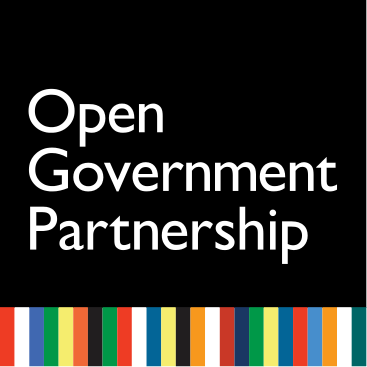Two German participants among 30 new open government pioneers
Hamburg and Detmold are the first entities from Germany to participate in the OGP Local Program.

Detmold and Hamburg
Photo: Public domain / Local-Logo: OGP
As part of participation in the Open Government Partnership (OGP), National Action Plans (NAPs) are drawn up at regular intervals. These contain commitments with concrete measures on participation, transparency, accountability and collaboration. Both Germany's second as well as the current third NAP (which is currently being implemented) already contain various projects by the German federal states [Bundesländer].
A few years back the OGP has also introduced a possibility for administrative entities below the national or federal level to participate directly, in an independent "Local Program". This program is open to all state and local governments from countries participating in the OGP worldwide, including Germany. The main aim of the program is to gain insights into open government reforms on the ground and to embed them more strongly in international discourse. Examples of participants from around the world, such as the city of Austin in Texas (USA), the region of Catalonia (Spain) or Scotland can be found on the program's website.
Worldwide, there already are almost as many "locals" participating in the program as there are countries participating in the OGP. However, there have not been any "local" participants from Germany. Until now. Following the last OGP call for applications, the projects of the City of Detmold and the Free and Hanseatic City of Hamburg (a city state) are among the cohort of about 30 newly accepted participants in the "Local Program," which will be implemented in the coming months.
The City of Detmold intends to set up a sustainability index at the neighborhood level and in collaboration with the urban community and to publish the indicators and their key figures as Open Data. With the Open Data neighborhood index, Detmold wants to strengthen the sense of community and make the big impact of small changes tangible. Partners from the urban community, such as the "Lippe im Wandel e.V.", ensure that the data is not just data, but that as many people as possible actively work towards change in their neighborhood. This can be, for example, planting and caring for trees, urban gardening or installing drinking water fountains in public spaces. Such changes in the cityscape, which must always be coordinated with the city and the respective neighborhood, create windfall effects and new network processes. A vibrant open data ecosystem is emerging.
The Free and Hanseatic City of Hamburg has applied together with the Körber Foundation [Körber Stiftung] and intends to set up a program to strengthen data-driven governance and data-based citizen participation. The Körber Foundation, cooperation partner for the application, is a non-profit institution that is active, among other things, in the field of democracy promotion for civil society, politics and administration with programs for citizen participation and the Open City Forum [Forum Offene Stadt], a specialist conference on Open Data and Open Governance. The City of Hamburg would like to engage in the OGP Local network to advance issues related to open governance and administration. To this end, the Hamburg administration is setting up data governance for the city in order to establish the handling of data in the Hanseatic city in a uniform and city-wide manner and thus strengthen the urban data space. In this context, opportunities are to be created for already openly available public sector data to become even more accessible and usable. This goes hand in hand with the fact that this data can be further explored and processed – both by city employees and by interested citizens and civil society in general. The Hamburg administration wants to share, use and, quite significantly, also protect the city's data. In this context, rules will have to be created promoting and strengthening the responsible handling of all existing data and information. This is a new issue for the Hanseatic City, which will be pursued under the term Public Data Responsibility. In addition, the effort is to enable equal access to various public digital services by strengthening the digital and data sovereignty of Hamburg residents. This means that both organizations and citizens gain the skills and competencies to navigate the digital space in a self-determined, independent, and secure manner in order to take full advantage of the opportunities that present themselves.
For questions about the OGP "Local Program", please contact local@opengovpartnership.org; for further information about the two applications, please contact the City of Detmold (Sandra Müller, s.mueller@detmold.de) or the Senate Chancellery [Senatskanzlei] of the Free and Hanseatic City of Hamburg (Norbert Kuhn, norbert.kuhn@sk.hamburg.de). General questions about Germany’s participation in the OGP can also be addressed to the Federal Chancellery [Bundeskanzleramt].
